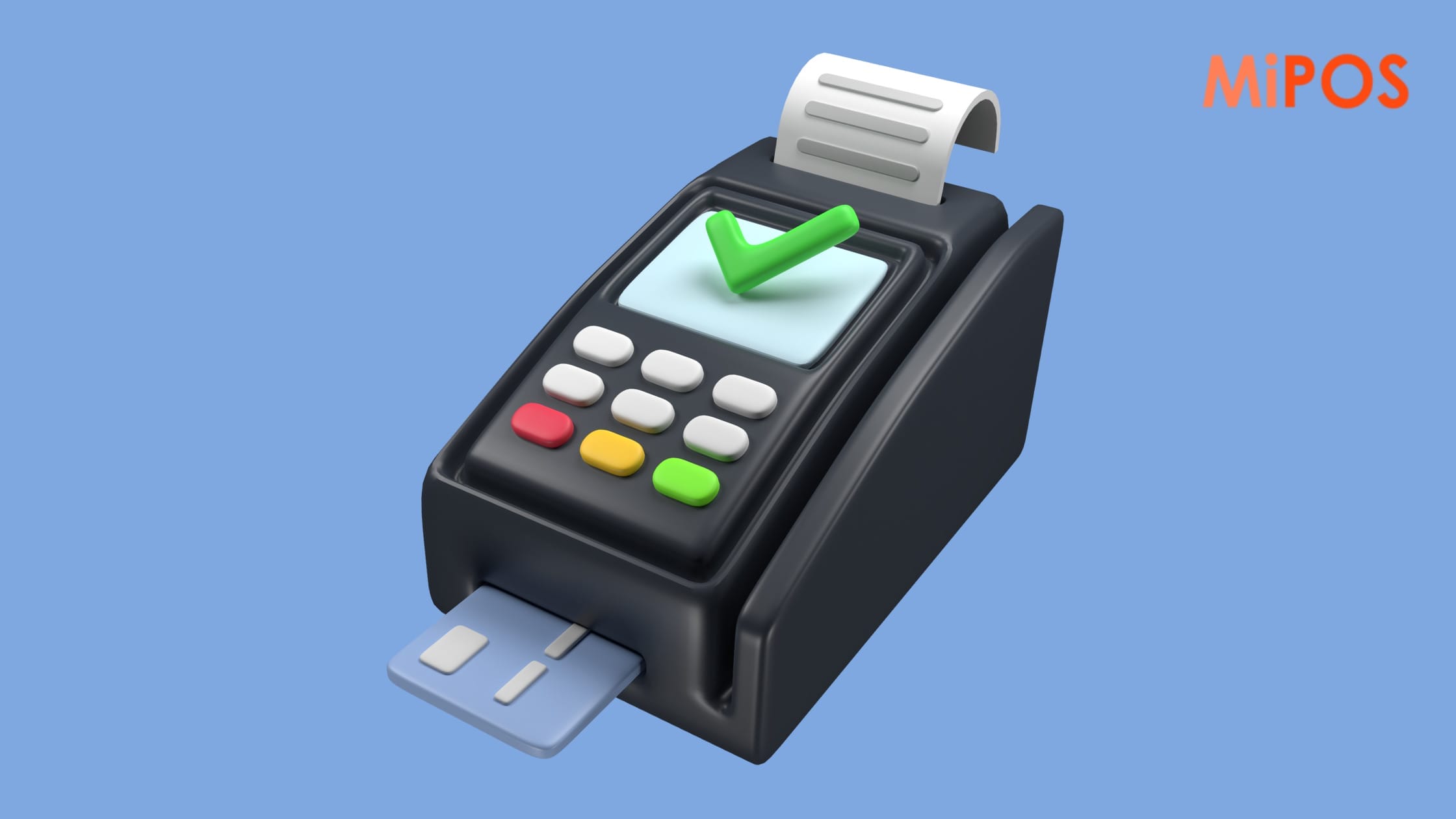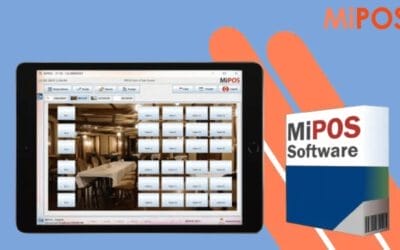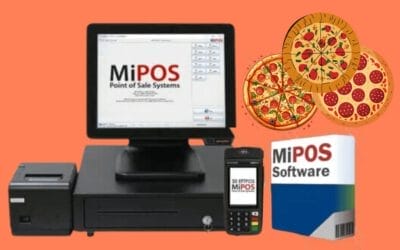If you are a business owner, you know how important it is to manage day-to-day operations while providing excellent service for your customers. Investing in a good Point of Sales System is one way that you can achieve that goal.
A POS system is more than a tool to process transactions; it helps businesses simplify transaction processes, manage inventory, improve customer relationships, and upgrade the overall performance of a business in any industry.
In this blog article, we’ll explore the advantages of a POS system in detail, helping you understand why investing in this technology is a smart decision for your business.
Advantages of a POS System
If you are not sure of why you need to invest in a POS System for your business, I guarantee you that these advantages of a POS System will help you identify the importance of a good POS System. Let’s take a look at the most prominent benefits of using a POS System.
1. Better Inventory Management
One of the biggest challenges businesses face is managing inventory. If you have a POS system, you can track stock levels in real-time and you will never have to fear inventory out of stock or overstock.
A POS System automatically updates the inventory after every sale happens at your business. That automation helps to reduce the human errors that occur when manually counting the inventory.
With effective inventory management that is facilitated by a POS System, you can restock the most popular items before they run out and avoid over-ordering slow-moving items.
For example, if you own a retail store, your POS system can inform you when a particular item is running low. This way you’re always stocked up on what your customers need most.
Also, you can track seasonal sales trends and adjust your inventory purchasing strategy accordingly.
2. Facilitates Quick Payments
What Customers expect the most from a business they deal with is the “Convenience.” They prefer a hassle-free and fast payment process. Well, with the busy lifestyles everyone has nowadays, we can’t complain about that.
One of the most important advantages of a POS System is the quick payment process it facilitates in a business environment.
Usually, POS systems support multiple payment methods, including credit or debit card, mobile payments like Apple Pay or Google Pay, and gift cards.
This flexibility allows customers to pay using their convenient method, reducing wait times at checkout. So, it provides a perfect and satisfying shopping experience.
For example, at a busy coffee shop instead of paying with cash or waiting for slow card readers, customers can tap their card or phone and be on their way in seconds. This also helps reduce queues, especially during peak hours.
3. Simple Invoicing
Accurate and professional invoices are key to maintaining clear financial records and building trust with customers. A POS system helps a business to generate invoices automatically. It makes sure that every sale is recorded properly, without the need for manual calculations.
This also helps reduce errors, which can be costly and frustrating for both businesses and customers.
Whether you’re running a café, retail business, or service-based business, a POS system can streamline invoicing, speeding up the checkout process while ensuring all sales are accounted for. Customers also appreciate receiving an organised invoice that’s easy to understand.
4. Better Customer Management
POS Software stores important customer data, such as their purchasing history, contact information, and preferences. When you have these data in your hand, you can customise the service you provide and improve customer satisfaction.
For example, if a regular customer at your restaurant prefers vegetarian meals. A POS system can highlight this preference so that staff can offer personalised recommendations or special promotions.
Also, with this data, you can categorise your customers and send targeted offers or promotions that resonate with them. For example, offering discounts to your most loyal customers or exclusive deals for first-time buyers can help build stronger relationships and encourage repeat business to increase sales.
5. Better Customer Orders
Making even a little mistake in a customer order can create a disaster. Especially with the power customers have in this era, you need to make sure that you provide exactly what they ask for.
A POS System can help you there! POS systems automate the order-taking process and reduce errors.
For example, in a busy restaurant, waitstaff can input orders directly into the system, ensuring that the kitchen staff receives the correct information without the risk of miscommunication. This helps improve order accuracy and ensures that customers receive exactly what they requested.
In retail stores, POS systems also simplify special orders. If a customer wants to buy an item that’s out of stock, the system can track the order, notify the customer when it arrives, and ensure prompt delivery or pickup.
6. Better Purchasing/Supplier Order Management
Managing supplier orders can be time-consuming, especially for businesses with large inventories. A POS system simplifies this process by automatically generating purchase orders when a stock falls below a pre-set threshold.
For example, if you own a grocery store, the system will inform you when it’s time to reorder items like fruits and vegetables, preventing stockouts and over-purchasing.
Also, it helps to manage supplier relationships more effectively by keeping a detailed record of past orders, delivery times, and costs. You can analyse this data to negotiate better terms with suppliers or find more cost-effective sources.
7. Better Customer Experience
Customer experience is a critical differentiator in today’s competitive market. A POS system can improve the overall customer experience by speeding up the transaction process, offering flexible payment methods, and ensuring order accuracy.
A good customer experience can lead to a lasting positive impression about your business and turn your customers into loyal customer base.
Imagine running a retail store where customers appreciate the convenience of a quick, error-free checkout process, personalised offers, and the ability to pay with their preferred method. This creates a positive environment, making customers more likely to return and recommend your business to others.
8. Better Customer Satisfaction & Loyalty
To build a loyal customer base, you need more than quality products. You need to provide outstanding customer service that makes the customers feel heard, valued, and appreciated.
A POS system helps you offer customer loyalty programs, track customer spending, and provide personalised offers. For example, a nail salon can use the POS system to reward clients who come in regularly by offering them discounts or free services after a certain number of visits.
In addition, POS systems can record customer feedback, helping you improve your services based on real insights, leading to increased satisfaction and loyalty over time.
9. Better Data Security
With sensitive customer information and financial data being processed daily, data security is essential for any business. POS systems offer built-in security features such as encrypted payment processing, user authentication, and access control, assuring that only authorized staff can access sensitive information.
For example, if you own a retail store, you can restrict access to certain parts of the system so that only managers can view financial data or issue refunds. This minimises the risk of fraud or theft, protecting both your business and your customers.
10. Better Employee Management
Managing employee schedules, tracking working hours, and monitoring performance are all simple with a POS system. The system tracks the hours covered by each employee, making payroll calculations more accurate.
Also, it can monitor sales performance, so you can easily identify top-performing employees who deserve recognition or additional training.
In a restaurant setting, for example, you can use the POS system to analyse which staff members are handling the most orders or generating the most tips. This data allows you to optimise scheduling, ensuring that your best employees are working during peak times.
MiPOS POS Systems: No.1 for Retail & Hospitality
Streamline your operations with MiPOS, Australia’s leading POS system for retail and hospitality businesses. Whether you’re running a small store or a bustling restaurant, our tailored Point of Sale solutions are designed to fit your needs perfectly.
11. Better Promotion Management
Running promotions is an effective way to boost sales, but managing them manually can be challenging. With a POS system, you can set up and apply for promotions automatically.
For example, a clothing store running a “buy one, get one 50% off” promotion can program the POS system to apply the discount at checkout, ensuring that no mistakes are made and customers are charged the correct amount.
Additionally, the system can track the performance of each promotion, helping you identify which campaigns are successful and which ones need improvement.
12. Better Customer Service
By automating many of the business operations that typically slow down customer service—like manually entering orders or calculating totals—a POS system frees up your staff to focus on providing better, more personalised service.
For example, in a restaurant, waitstaff can spend more time attending to customers’ needs, rather than worrying about order errors or delays in the kitchen.
This improved service leads to happier customers who are more likely to return and recommend your business to others.
13. Better Company Organization
POS systems centralise all aspects of your business operations, including sales tracking, inventory management, employee schedules, and customer data. With a POS System, you can easily access all the information you need from one platform, making it easier to stay organised and on top of everything.
For example, a clothing boutique with multiple locations can manage inventory, sales, and employee performance from one centralised dashboard, ensuring that operations run smoothly across all stores.
14. Improve Company Image
A POS system doesn’t just streamline operations—it also gives your business a modern, professional image. Customers are more likely to trust and return to a business that uses up-to-date technology for fast and accurate transactions. This is especially important in industries like retail and hospitality, where customer expectations are high.
A store that offers digital receipts, for example, shows that it’s environmentally conscious and technologically advanced, which can leave a positive impression on customers and enhance your brand’s reputation.
15. Regular Updates
POS systems often receive regular software updates from the provider, which introduce new features, improve functionality, and improve security. This means your business can stay up to date with the latest industry trends without having to invest in new hardware.
These updates also ensure that your system remains compliant with the latest security standards, protecting your business from cyber threats.
16. 24/7 Access to Data
Cloud-based POS systems provide 24/7 access to your business data from any location with an internet connection. This is useful for business owners who travel or manage multiple locations.
For example, if you own a chain of restaurants, you can check the daily sales, track sales, inventory levels, and employee performance of each location from your phone or computer, no matter where you are.
This flexibility gives you more control over your business and allows you to make informed decisions on the go.
17. Simplification of Operations
POS systems automate many of the time-consuming tasks that can slow down day-to-day operations. For example, generating sales reports, tracking inventory, and managing employee schedules are all simplified, allowing you and your staff to focus on providing excellent service to customers.
By simplifying these tasks, a POS system helps reduce stress, improve workflow, and create a more efficient business environment.
18. Personalization & Insights
One of the biggest advantages of a POS system is the ability to collect detailed insights into your business. By studying sales trends, customer tastes, and employee performance, you can make data-driven decisions that improve your bottom line.
For example, a café can analyse which menu items are most popular and adjust the menu to meet customer preferences.
Additionally, the insights provided by a POS system can help you personalise your marketing efforts. Understanding what your customers like lets you tailor promotions and offers to their specific needs, leading to higher sales and improved customer loyalty.
19. Seamless Integration with Other Software
A modern POS system can integrate seamlessly with other software systems you may already be using, such as accounting software (QuickBooks, Xero), eCommerce platforms, or customer relationship management (CRM) systems.
These integrations help you to streamline your operations by automating data transferring between platforms. For example, when a sale is made through your POS, it can automatically update your accounting system with the relevant financial data, reducing the need for manual entry and minimising the chances of errors.
For an eCommerce business, this integration helps you keep your online and in-store inventories synchronised, ensuring that products are never oversold and customers always get accurate stock information.
20. Scalability for Growing Businesses
As your business grows, your operational needs will grow. A POS system is scalable, meaning it can grow with your business. Whether you expand from one store to multiple locations or increase your product range, a POS system can adapt to these changes without significant upgrades or disruptions.
For example, a retail store may start with a single location and later expand to multiple branches. A scalable POS system allows you to add new locations and manage them all from one central dashboard.




